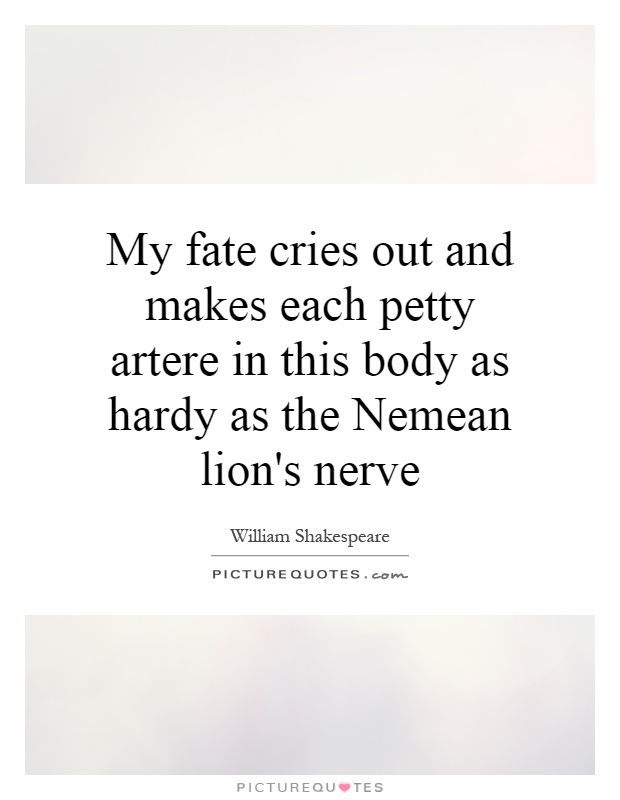My fate cries out and makes each petty artere in this body as hardy as the Nemean lion's nerve

My fate cries out and makes each petty artere in this body as hardy as the Nemean lion's nerve
In the famous play "Julius Caesar" by William Shakespeare, the character of Julius Caesar utters the line, "My fate cries out and makes each petty artere in this body as hardy as the Nemean lion's nerve." This powerful statement reflects Caesar's belief in his own destiny and his unwavering determination to face whatever challenges come his way.The reference to the Nemean lion is significant, as in Greek mythology, the Nemean lion was a fearsome creature with impenetrable skin that could not be pierced by any weapon. By comparing himself to the Nemean lion, Caesar is expressing his belief that he is invincible and unbeatable, just like the legendary beast.
The phrase "My fate cries out" suggests that Caesar is aware of his destiny and is willing to embrace it, no matter what obstacles stand in his way. He sees himself as a force of nature, with the strength and resilience of the Nemean lion, ready to face any challenge head-on.
This line also highlights Caesar's arrogance and hubris, as he believes himself to be above mortal concerns and immune to the whims of fate. His confidence in his own abilities borders on arrogance, and ultimately leads to his downfall as he underestimates the threat posed by his enemies.
Shakespeare uses this line to explore themes of fate, destiny, and the limits of human power. Caesar's belief in his own invincibility serves as a cautionary tale about the dangers of unchecked ambition and pride.
Overall, the line "My fate cries out and makes each petty artere in this body as hardy as the Nemean lion's nerve" encapsulates Caesar's belief in his own destiny and his willingness to face whatever challenges come his way with unwavering determination and strength. It serves as a powerful reminder of the consequences of hubris and the fragility of human power in the face of fate.












 Friendship Quotes
Friendship Quotes Love Quotes
Love Quotes Life Quotes
Life Quotes Funny Quotes
Funny Quotes Motivational Quotes
Motivational Quotes Inspirational Quotes
Inspirational Quotes